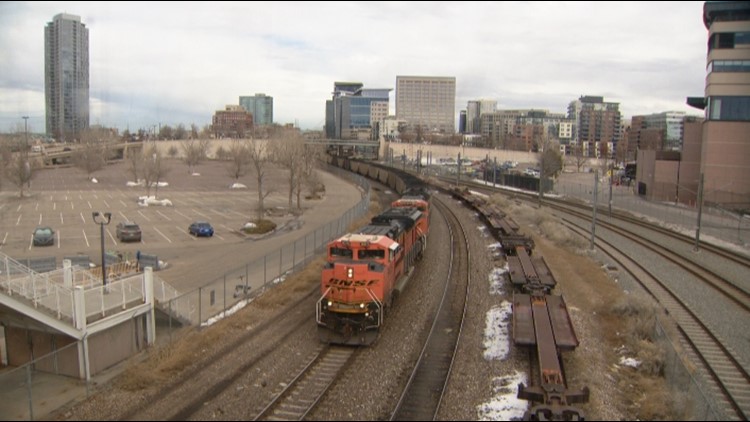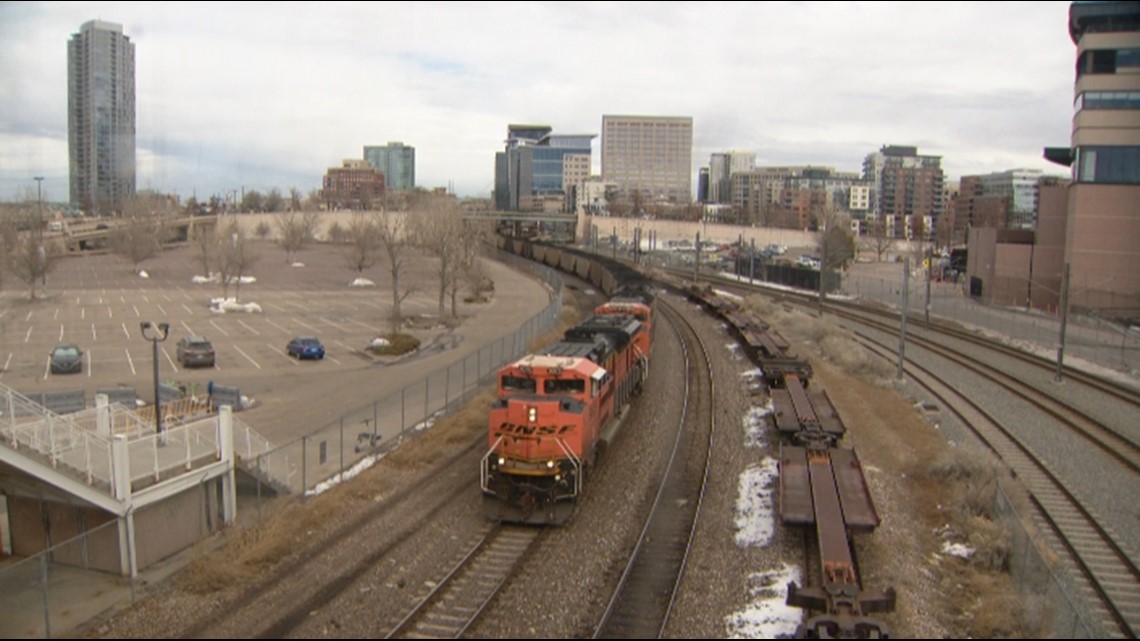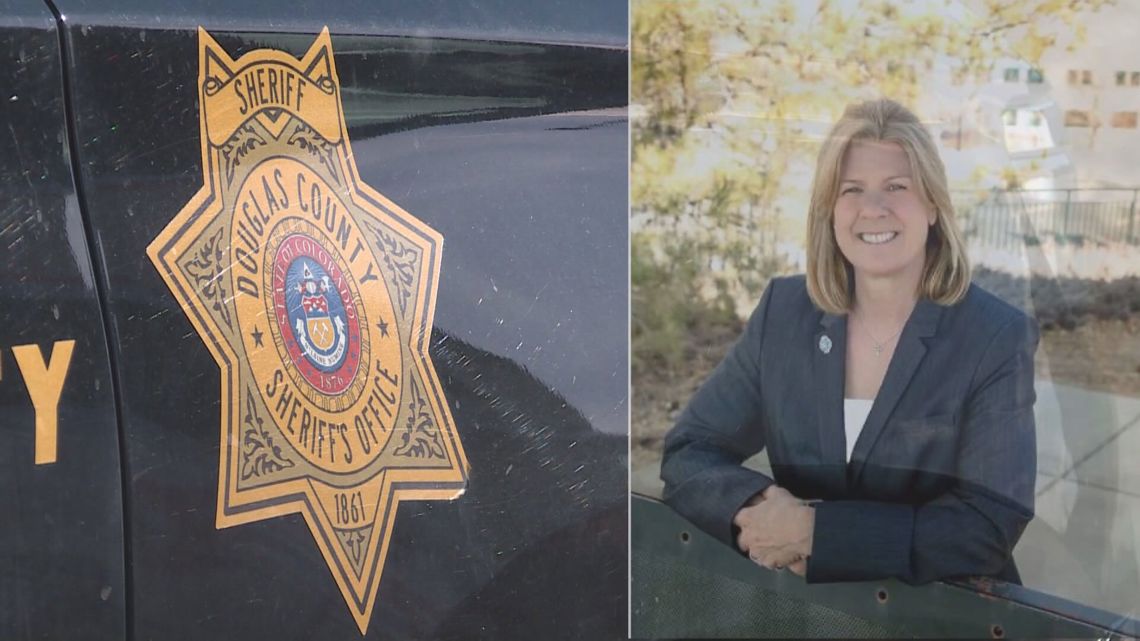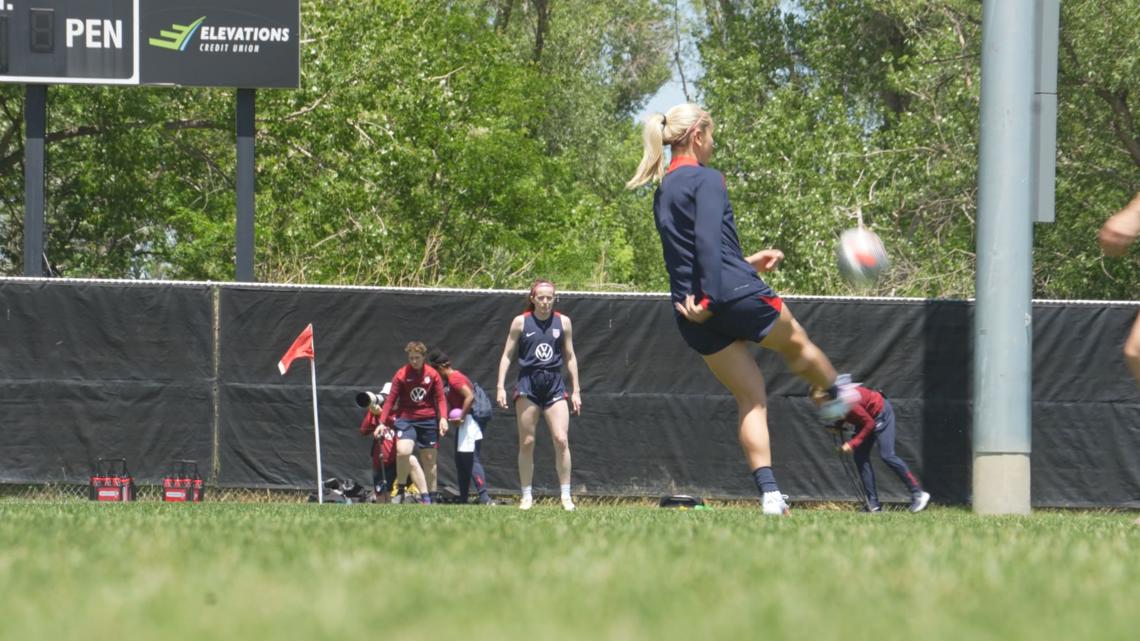
A proposal to limit developments to 100 feet from train tracks failed in Denver city council last year.
DENVER — Trains roar right through the middle of Colorado cities every day. They hardly ever derail, but that doesn’t mean never.
Before the sun rose in Loveland on Wednesday, people woke up to a train off its track and hundreds of gallons of fuel spilled. It happened right near residential areas in the middle of town.
As the state grows, there’s a push to make sure safety requirements in urban areas keep up. That includes trains.
In Denver, new developments are built as close as they can legally get to the tracks. Former City Councilwoman At-Large Debbie Ortega says there are thousands of homes and apartments that practically touch the trains.
“The biggest issue is how close we’re letting development be to the train tracks,” Ortega said. “If we have an incident with a petroleum product breach that causes an explosion, it will have a firecracker effect and it will be catastrophic to our downtown.”
For years, she’s fought to make sure safety measures around railroads keep up with Colorado’s growing population. When she was on city council, she tried to pass rules requiring new developments to be built farther away from train tracks. That failed.
“What we were looking at was 100 feet, which is about the distance of a train car. So, if you had a derailment, you’re at least providing some safeguards,” Ortega said.
Denverite reports that almost 6,000 residential parcels in Denver sit within 100 feet of train tracks.
Last year, the City and County of Denver released a report on railroad safety in the city. In part, it said that a hazmat incident involving trains in the city is highly likely. One of the easiest suggestions given was to develop evacuation plans in case something like this were to happen.
In June of 2023, a train derailed near the Suncor Refinery. In 2022, a train derailed into the South Platte River. Across the state, there are concerns about new proposed rail projects like the Uinta Basin Railway through Glenwood Canyon that opponents say could impact millions of people’s drinking water if a derailment were to happen.
“At a local level, we need to be talking about zoning codes,” said Ean Thomas Tafoya, state director for Green Latinos Colorado. “On a state level we need to be talking about empowering and protecting workers.”
While the future of the Uinta Railway is uncertain, Tafoya says the impact of other rail lines running through urban areas could still be harmful.
“Environmental justice is about exposures to toxins and whether or not the community is able to change the system to protect their own health,” Tafoya said. “When it comes to trains, we’re talking about derailments, impacts on water, air quality, vibrations, air pollution, it’s all on the table when it comes to trains.”
A small derailment in one town Wednesday continues a conversation about safety and growth around the state.
“There is so much more that we could and should be doing,” Ortega said.
More from Marc Sallinger:
SUGGESTED VIDEOS: Next with Kyle Clark











